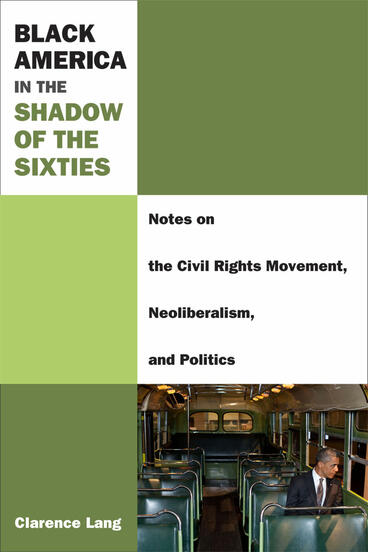Black America in the Shadow of the Sixties
Notes on the Civil Rights Movement, Neoliberalism, and Politics
A spirited argument for moving beyond the legacy of the Civil Rights era to best understand the current situation of African Americans
Description
The 1960s, including the black social movements of the period, are an obstacle to understanding the current conditions of African Americans, argues Clarence Lang. While Americans celebrate the current anniversaries of various black freedom milestones and the election of the first black president, the effects of neoliberalism since the 1970s have been particularly devastating to African Americans. Neoliberalism, which rejects social welfare protections in favor of individual liberty, unfettered markets, and a laissez-faire national state, has produced an environment in which people of color struggle with unstable employment, declining family income, rising household debt, increased class stratification, and heightened racial terrorism and imprisonment. The book argues that a reassessment of the Sixties and its legacies is necessary to make better sense of black community, leadership, politics, and the prospects for social change today. Combining interdisciplinary scholarship, political reportage, and personal reflection, this work sheds powerful light on the forces underlying the stark social and economic circumstances facing African Americans today, as well as the need for cautious optimism alongside sober analysis.
Clarence Lang is Associate Professor of African & African-American Studies, and American Studies, at the University of Kansas.

